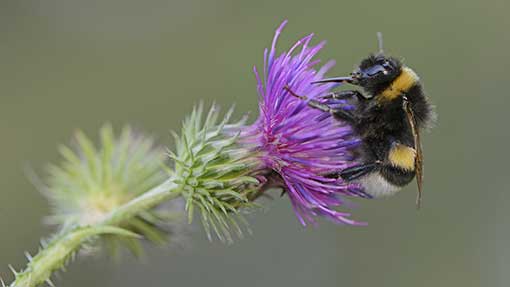Pesticide exposure ‘could lead to smaller bees’

Exposure to pyrethroid pesticides can cause worker bumblebees to grow less and produce smaller young, according to a new study by Royal Holloway University London.
The research comes following the EU’s two-year ban on three key neonicotinoid pesticides, which could increase the importance of pyrethroids for UK growers.
Researcher Gemma Baron from Royal Holloway says this could be detrimental to a colony, with smaller bees being less efficient at collecting nectar and pollen from flowers.
“We already know that larger bumblebees are more effective at foraging. Our results, revealing that this pesticide causes bees to hatch out at a smaller size, is of concern as the size of workers produced in the field is likely to be a key component of colony success,” she explains.
Researchers from the university’s school of biological sciences worked with colonies of bumblebees in their laboratory and exposed half of them to the pesticide as part of the project published in the Journal of Applied Ecology.
Nigel Raine, who also worked on the project, says it is a significant step forward in understanding the detrimental effect of pesticides other than neonicotinoids on wild bees, but he admits more field work needs to be done.
“Further studies using colonies placed in the field are essential to understand the full effects, and conducting such studies needs to be a priority for scientists and governments.”
The study was funded by a Natural Environment Research Council (NREC) PhD studentship, and the Insect Pollinators Initiative, joint-funded by the Biotechnology and Biological Sciences Research Council (BBSRC), DEFRA, NERC, the Scottish government and the Welcome Trust. It is managed under the auspices of the Living with Environmental Change (LWEC) partnership.

